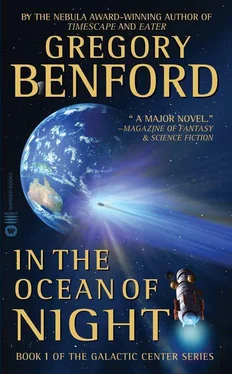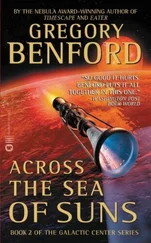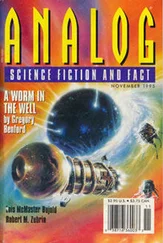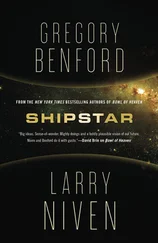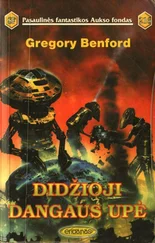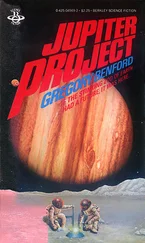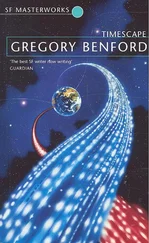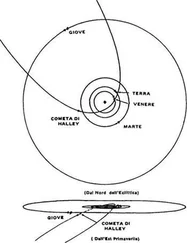NASA hoped the controversy would stimulate funding for an Icarus flyby. The Agency, ever press-conscious, needed support. It had come a long way from the dark days of 1986, when the explosion of the Challenger had begun a fundamental shift in Agency thinking. NASA went on to develop the transats—trans-atmospheric rocket-airplane combinations that flew a good piece of the way to the upper atmosphere, then boosted into orbit on rocket thrust—but it had been badly mauled. As soon as it could, it edged away from the milk-run, commercial and military business of carrying tonnage into orbit. NASA was trying to become a primarily scientific agency now.
Icarus seemed a pleasantly distant spectacle. Its sudden, bright, fan-shaped coma was larger and prettier than Halley’s Comet’s rather disappointing apparition in 1985. The Los Angeles Times dubbed it “the instant comet.” People could see it, even through suburban smog. It made news.
But in the winter of 2017, the question of Icarus’s composition became more than a passing, academic point. The jet of gas spurting from the head of what was now Comet Icarus seemed to have deflected it. The dust cloud was moving sidewise slightly as it followed Icarus’s old orbit, and it was natural to assume that if a core remained, it was somewhere near the center of the drifting cloud. The deflection was slight. Precise measurements were difficult and some uncertainty remained. But it was clear that by mid-2019 the center of the cloud and whatever remained of Icarus would collide with the Earth.
“Len, how’s it look from your end?” Nigel said. “Pretty dull. Can’t see much for the dust. The sun’s a kind of watery color looking through the cloud. I’m off to the side pretty far, to separate your radio and radar image from the sun’s.”
“Where am I?”
“Right on the money, in the center of the dust. On your way to Bengal.”
“Hope not.”
“Yeah. Hey—getting a relay from Houston for you.” A moment’s humming silence as the black pitted world turned beneath him. Nigel wondered whether it was made of the original ancient material that formed the solar system, as the astrophysicists said, or the center of a shattered planet, as the popular media trumpeted. He had hoped it would be a snowball of methane and water ice that would break up when it hit Earth’s atmosphere—perhaps filling the sky with blue and orange jets of light and spreading an aurora around the globe, but doing no damage. He stared down at the cinder world that had betrayed his hopes by being so substantial, so deadly. The automatic cameras clicked methodically, mapping its random bumps and depressions; the cabin smelled of hot metal and the sour tang of sweat. No leisurely strolling and hole-boring expeditions with Len, now; no measurements; no samples to chip away; no time.
“Dave again, Nigel. Those magnetic field strengths sew it up, boy—it’s nickel-iron, probably eighty percent pure or better. From the dimensions we calculate the rock masses around four billion kilograms.”
“Right.”
“Len’s radar fixes have helped us narrow down the orbit, too. That ball of rock you’re looking at is coming down in the middle of India, just like we thought. I—”
“You want us to go into the retail poultry business,” Nigel said.
“Yeah. Deliver the Egg.”
Nigel lit a panel of systems monitors. “Bringing the Egg out of powered-down operation,” he said mechanically, watching the lights sequence.
“Good luck, boy,” Len broke in. “Better look for a place to plant it. We’ve got plenty of time. Holler if you need help,” he said, even though they both knew full well he could not bring the Dragon module into the cloud without temporarily losing most communications with Houston.
Nigel passed an hour in the time-filling tasks of awakening the fifty-megaton fusion device that rode a few yards behind his cabin. He repeated the jargon—redundancy checks, safe-arm mode, profile verification—without taking his attention fully from the charred expanse below. Toward the end of the time he caught sight of what he had anticipated: a jagged cleft at the dawn edge of Icarus.
“I think I’ve found the vent,” he called. “About as long as a soccer field, perhaps ten meters wide in places.”
“A fracture?” Len said. “Maybe the thing’s coming apart.”
“Could be. It will be interesting to see if there are more, and whether they form a pattern.”
“How deep is it?”
“I can’t tell yet; the bottom is in shadow now.”
“If you have the time—wait, Houston wants to patch through to you again.”
A pause, then: “We’ve been very happy with the relayed telemetry from you, Nigel. Looks to us here in Control as though the Egg is ready to fly.”
“Has to be hatched before it can fly.”
“Right, boy, got me on that one,” Dave said with sudden exuberant levity.
A pause, then Dave’s tones became rounded, modulated. “You know, I wish you could see the Three-D coverage of the crowds around the installation here, Nigel. Traffic is blocked for a twenty-kilometer radius. There are people everywhere. I think this has caught the imagination of all humanity, Nigel, a noble attempt—”
He wondered if Dave knew how all this sounded. Well, the man probably did; every astronaut a member of Actor’s Equity.
He grimaced when, a moment later, the smooth voice described the sweaty press of bodies around NASA Houston, the heat strokes suffered and babies delivered in the waiting crowds, the roiling prayer chains of New Sons, their nighttime vigils around bonfires of licking, oily flames. The man was good, no possible qualm over that; the millions of eavesdroppers thought they were listening to the straight stuff, an open line between Houston and Icarus meant for serious business, when in fact the conversation at Dave’s end was elaborately staged and mannered.
“Anybody you’d like to talk to back here on Earth, Nigel, while you’re taking your break?”
He replied that no, there was no one, he wanted to watch Icarus as it turned, study the vent. While, simultaneously, he saw in his mind’s eye his parents in their cluttered apartment, wanted to speak to them, felt the halting, ineffectual way he had tried to explain to them why he was doing this thing.
They still lived in that dear dead world where space equaled research equaled dispassionate truth. They knew he had trained for programs that never materialized. He’d put in time in orbit as a glorified mechanic, and that had seemed quite all right.
But this. They couldn’t understand how he’d come to take a mission which promised nothing but the chance to plant a bomb if he succeeded, and death if he failed. A scrambled, jury-rigged, balls-up of a mission with sixty percent chance of failure; so the systems analysts said.
They had emigrated from England, following their son when he was selected for the US-European program, hard on his final year at Cambridge. As an all-purpose scientist he’d seemed trainable, in good condition (squash, soccer, amateur pilot) agreeable, docile (after all, he was British, happy to have any sort of career at all) and presentable. When he showed superior reflexes, did well in flight training and was accepted into the aborted Mars program, his parents felt vindicated, their sacrifices redeemed.
He would lead in the new era of moon exploration, they thought. Justify their flight from a sleepy, comfy England into this technicolor technocrat’s circus.
So when the Icarus thing came, they’d asked: Why risk his Cambridge years, his astronautics, in the high vacuum between Venus and Earth?
And he’d said—?
Nothing, really. He had sat in their Boston rocker, pumping impatiently, and spoken of work, plans, relatives, the Second Depression, politics. Of their arguments he remembered little, only the blurred cadences of their voices. In memory his parents blended together into one person, one slow Suffolk accent he recalled as filling his adolescence. His own voice could never slide into those smooth vowels; he could never be them. They were a separate entity and, no matter that he was their son, he was beyond some unspoken perimeter they drew in their lives. Within that curve was certainty, clear forms. Their living room had pockets of air in it, spots smelling of sweet tea or musty bindings or potted flowers, things more substantial than his words. There in their damp old house his jittery, crowded world fell away and he, too, found it difficult to believe in the masses of people who jammed into the cities, fouling the world and blunting, spongelike, the best that anyone could do or plan for them.
Читать дальше
